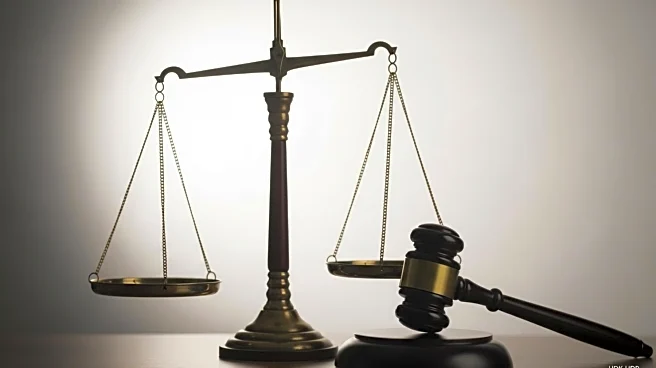What's Happening?
James Comey, the former FBI director, has pleaded not guilty to charges of lying to Congress. The charges stem from his testimony before a Senate committee in September 2020. Comey's legal team, led by Patrick Fitzgerald, plans to file motions to dismiss the case, arguing that the prosecution is 'vindictive' and 'selective,' influenced by President Trump's public demands for legal action against Comey. The case has been controversial, with career prosecutors in the Eastern District of Virginia initially refusing to pursue it, leading to the appointment of Lindsey Halligan as U.S. attorney by the White House. Halligan, a former insurance lawyer, has faced challenges in managing the case, which has been described as weak by some legal experts.
Why It's Important?
The case against James Comey is significant as it highlights the ongoing political tensions and potential misuse of prosecutorial power. If the charges are proven to be politically motivated, it could undermine public trust in the justice system and set a concerning precedent for future legal actions against political figures. The outcome of this case could impact the careers of those involved and influence public perception of the Trump administration's handling of legal matters. Additionally, the case has already caused turmoil within the Eastern District of Virginia, with resignations and firings of prosecutors who opposed the indictment.
What's Next?
The court has scheduled a trial date for January 5, with a follow-up hearing later this month. Comey's defense team is expected to file motions to dismiss the charges, challenging both the nature of the prosecution and the appointment of Lindsey Halligan as U.S. attorney. The judge has expressed skepticism about the complexity of the case, suggesting it may not be as complicated as the prosecution claims. The trial's outcome could have significant implications for the involved parties and the broader political landscape.
Beyond the Headlines
The case raises questions about the ethical implications of using legal proceedings as a tool for political retribution. It also highlights the challenges faced by legal professionals in maintaining independence and integrity in politically charged cases. The situation underscores the importance of safeguarding the justice system from external influences and ensuring that legal actions are based on evidence rather than political agendas.









